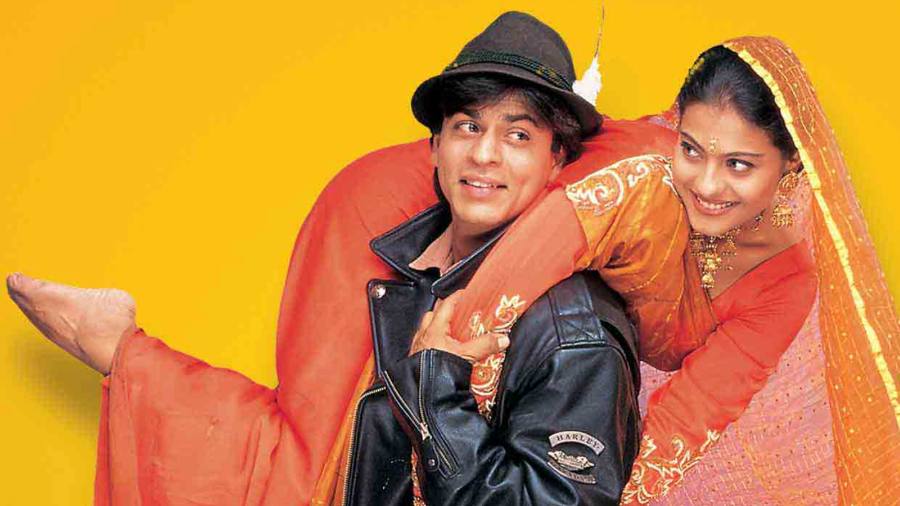To celebrate Shah Rukh Khan’s 57th birthday, his most iconic film, Dilwale Dulhania Le Jayenge aka DDLJ, re-released in select theatres across the country on November 2. Having watched the Aditya Chopra-directed film when it had released in theatres back in 1995, the news stirred a whirlwind of memories.
Growing up in a small town in West Bengal, we did not have the opportunity of enjoying new film releases at theatres for months at a stretch. DDLJ was an exception. The Shah Rukh-Kajol-starrer released in our quaint town of Jalpaiguri on the same day as in the rest of the country, and people made a beeline outside cinema halls for tickets.
DDLJ stayed on in the cinemas for many Fridays, and every time we had relatives visiting us from outside Jalpaiguri, my large joint family would plan to catch the film together. Imagine a motley crowd of 40-50 people, of various ages, thronging the theatre, bursting in excitement. This meant that some of us, like me, ended up watching DDLJ multiple times (and without complaints!).
Buying tickets of such a popular movie for such a large group was an ordeal. Someone had to stand in the queue at the ticket counter for hours on end to ensure that we all got good seats. Ticket sales would begin half an hour before the show, and all hell would break loose.
More drama was reserved inside the theatre, though. I still remember the men in the audience whistling and hooting when Kajol, as Simran, appears on screen for the first time wrapped in a towel, lip-syncing to Lata Mangeshkar’s Mere Khwabon Mein.
And an entire row of cousins would shed copious tears as Amrish Puri’s Babuji would let go of Simran’s hand and tell his daughter, ‘Ja Simran ja, jee le apni zindagi’, followed by thunderous applause with Raj pulling Simran on to the train.
And don’t even get me started on the ‘palat’ scene, or Shah Rukh’s ‘bade bade desho mein’ dialogue. We, cousins, would giggle and blush away like crazy. Recreating the flower prank at most birthday parties and get-togethers also became a ritual of sorts.
For an audience, most of which had never stepped out of their small town in Bengal, the jaw-dropping, serene locations in Europe were out of the world. Walking out of the theatre, the only thing that our family could talk of was visiting the lush green landscapes of Switzerland someday. EuroRail was an enigma we wished to experience at least once in our lifetime.
DDLJ turned Shah Rukh into a household name. I remember how the elders in the family gushed over his character Raj, an NRI with Indian values, and how my cousin sisters crushed on Shah Rukh.
The fact that Raj was ready to cross continents for the woman he loves made the girls — both in my family and in my class — mad about him. And the fact that he was not ready to have Simran elope with him made him a hero for our kakimas and jethimas.
DDLJ also set fashion trends and Kajol became a style icon. For Durga Puja that year, the tailors in our town were bombarded with requests to make lehengas like the one Kajol wore in the Mehendi Lagake Rakhna song. And I remember pestering my mother to make me a pathan suit, like the one Raj wore, for a cousin’s wedding.










